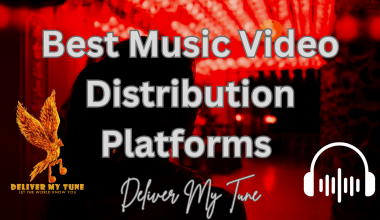In today’s digital age, licensing your music for commercial use is an essential step for any musician. Whether you’re an independent artist or part of a band, getting your music into commercials, films, TV shows, or video games can be a lucrative opportunity. This comprehensive guide will walk you through everything you need to know about how to license your music for commercial use, ensuring you understand the process, legalities, and best practices to maximize your music’s potential.
What is Music Licensing?
Music licensing is the process of granting permission to use a piece of music for a particular purpose, such as in a commercial, film, or other media. This permission is typically granted through a music license agreement, which outlines the terms and conditions under which the music can be used.
Types of Music Licenses
Understanding the different types of music licenses is crucial when learning how to license your music for commercial use. Here are the main types:
- Synchronization License (Sync License)
- A sync license allows the licensee to synchronize your music with visual media such as films, TV shows, advertisements, and video games.
- Mechanical License
- This license is required to reproduce and distribute your music, for example, on CDs, vinyl, or digital downloads.
- Master License
- The master license grants permission to use the original recording of your music in sync with visual media.
- Public Performance License
- A public performance license is needed for your music to be played in public spaces, such as concerts, radio, and streaming services.
- Print License
- This license allows your music to be reproduced in printed form, such as sheet music.
Steps to License Your Music for Commercial Use
Now that you understand the types of licenses, let’s dive into the steps on how to license your music for commercial use.
1. Copyright Your Music
Before you can license your music, you need to ensure it is legally protected. Copyrighting your music establishes you as the legal owner and allows you to control how it is used. In most countries, copyright is automatically granted when the music is created and fixed in a tangible form, but registering your copyright with the relevant authority provides additional legal protection.
2. Understand Your Rights
As a music creator, you have exclusive rights to your work. These rights include the ability to reproduce, distribute, perform, and create derivative works. Understanding these rights is essential when negotiating licenses and ensuring you get fair compensation.
3. Join a Performing Rights Organization (PRO)
PROs, such as ASCAP, BMI, or PRS, help manage and collect royalties on behalf of musicians for public performances. Joining a PRO is a crucial step in how to license your music for commercial use as they ensure you get paid when your music is played publicly.
4. Choose the Right Licensing Platform
There are various platforms and agencies that can help you license your music. Some popular options include:
- Musicbed
- AudioJungle
- Songtradr
5. Set Your Terms and Conditions
When licensing your music, it’s important to clearly define the terms and conditions. This includes:
- Duration: How long the license is valid.
- Territory: Where the music can be used.
- Exclusivity: Whether the license is exclusive or non-exclusive.
- Fees: The cost of the license and how you will be compensated.
6. Negotiate the License Agreement
Once you’ve set your terms, you may need to negotiate with potential licensees. Be prepared to discuss the usage, compensation, and any other relevant details to ensure a fair agreement.
7. Monitor Your Licensed Music
After licensing your music, it’s important to keep track of where and how it is being used. This helps ensure compliance with the license terms and allows you to collect any due royalties.
Benefits of Licensing Your Music for Commercial Use
Licensing your music offers several benefits that can enhance your career and provide additional income streams.
1. Increased Exposure
Getting your music placed in commercials, films, or TV shows can significantly increase your exposure. This can lead to more fans, higher streaming numbers, and additional opportunities.
2. Passive Income
Licensing your music allows you to earn royalties whenever your music is used. This passive income can provide financial stability and allow you to focus more on creating music.
3. Validation and Credibility
Having your music chosen for commercial projects can validate your work and add to your credibility as an artist. It shows that your music has professional appeal and can meet the standards of the industry.
Common Challenges and How to Overcome Them
While licensing your music can be rewarding, there are also challenges that you may face. Here are some common challenges and tips on how to overcome them.
1. Understanding Legal Jargon
Licensing agreements can be filled with legal jargon that can be confusing. It’s important to seek legal advice or work with a professional to ensure you understand the terms and implications of any agreements.
2. Finding the Right Opportunities
Finding the right opportunities to license your music can be time-consuming. Networking, using licensing platforms, and actively promoting your music can help you find more opportunities.
3. Fair Compensation
Ensuring you are fairly compensated for your music can be challenging. Research industry standards and be prepared to negotiate to ensure you receive a fair share of the profits.
Tips for Successful Music Licensing
Here are some additional tips to help you successfully license your music for commercial use.
1. Create High-Quality Music
High-quality recordings are essential for commercial use. Invest in professional recording and mastering to ensure your music meets industry standards.
2. Build a Strong Portfolio
Having a diverse portfolio of music can increase your chances of getting licensed. Create different styles and moods to appeal to a wider range of potential licensees.
3. Network and Promote
Networking with industry professionals and promoting your music can open up new licensing opportunities. Attend industry events, connect with other musicians, and use social media to showcase your work.
4. Stay Organized
Keep detailed records of all your licensed music, agreements, and royalty payments. This will help you manage your licenses and ensure you get paid on time.
Detailed Breakdown of Licensing Process
Step-by-Step Guide to Copyrighting Your Music
- Fix Your Music in a Tangible Medium
- Record your music or write it down. This can be as simple as recording a demo on your smartphone or writing out the sheet music.
- Register with the Copyright Office
- In the United States, this involves filling out an application with the U.S. Copyright Office, paying a fee, and submitting a copy of your music. Other countries have similar processes.
- Receive Your Copyright Certificate
- Once your application is processed, you will receive a certificate of copyright, confirming your legal ownership.
Understanding Your Rights in Depth
- Reproduction Rights
- This allows you to control how your music is copied. Only you can make copies or authorize others to do so.
- Distribution Rights
- You have the exclusive right to distribute your music, whether it’s selling CDs, vinyl, or digital downloads.
- Performance Rights
- You control how and where your music is performed publicly. This includes live performances, radio plays, and streaming services.
- Derivative Works
- You can create new works based on your original music, such as remixes, covers, or adaptations.
- Display Rights
- This covers the visual representation of your music, such as displaying lyrics or sheet music.
Choosing and Joining a Performing Rights Organization (PRO)
- Research PROs
- Different PROs offer various benefits and fees. In the U.S., ASCAP, BMI, and SESAC are the primary options. In the UK, PRS for Music is the main organization.
- Submit Your Application
- Each PRO has its own application process, typically involving providing information about yourself and your music.
- Register Your Music
- Once you are a member, you need to register your compositions with the PRO so they can track and collect royalties on your behalf.
Setting Up Your Licensing Platform Profile
- Create a Professional Profile
- Ensure your profile on platforms like Musicbed, AudioJungle, or Songtradr is complete and professional. Include high-quality images, a detailed bio, and links to your music.
- Upload Your Music
- Upload your tracks in high-quality formats. Include detailed descriptions and tags to help potential licensees find your music.
- Promote Your Music
- Use social media and other promotional tools provided by the platform to increase visibility.
Negotiating License Agreements
- Understand Common Terms
- Familiarize yourself with terms like “sync fee,” “royalty rate,” and “exclusivity.”
- Be Prepared to Negotiate
- Know your worth and be ready to negotiate terms that are fair and beneficial. Don’t be afraid to seek legal advice if needed.
- Document Everything
- Ensure all agreements are in writing and signed by both parties. Keep copies of all documents.
Real-World Examples of Music Licensing Success
- Television and Film
- Artists like Moby and Regina Spektor have successfully licensed their music to TV shows and films, significantly boosting their careers.
- Commercials
- Feist’s song “1234” was used in an Apple commercial, leading to a massive increase in her popularity and sales.
- Video Games
- The band Imagine Dragons licensed their song “Warriors” for the video game League of Legends, reaching a global audience.
Advanced Strategies for Music Licensing
- Work with Licensing Agents
- Consider working with agents who specialize in music licensing. They have industry connections and can help you find more opportunities.
- Leverage Technology
- Use software and platforms designed to help manage your music catalog, track usage, and collect royalties efficiently.
- Expand Internationally
- Look into licensing opportunities in other countries. Music has a global market, and licensing internationally can open up new revenue streams.
Conclusion
Licensing your music for commercial use is a powerful way to increase your exposure, earn passive income, and advance your music career. By understanding the different types of licenses, following the proper steps, and utilizing the tips provided in this guide, you can successfully navigate the process of how to license your music for commercial use. Remember, the key to successful music licensing is creating high-quality music, understanding your rights, and actively seeking out opportunities.
By leveraging the strategies and insights shared in this comprehensive guide, you will be well-equipped to make the most of your musical talents in the commercial realm.
For further reading, explore these related articles:
- Deliver My Tune’s Exciting New Services!
- How to Get Verified on Instagram & Facebook?
- Contract Negotiation Tips for Musicians
For additional resources on music marketing and distribution, visit Deliver My Tune.






